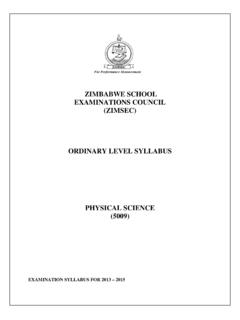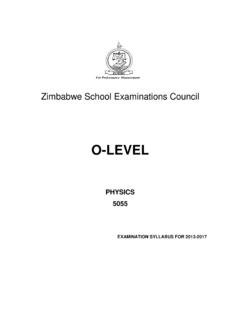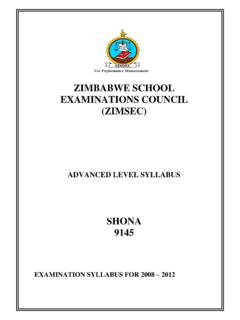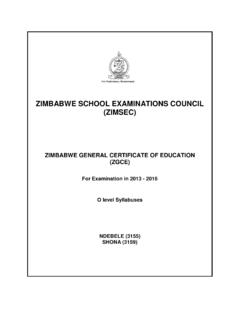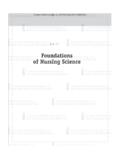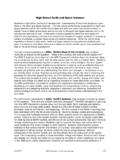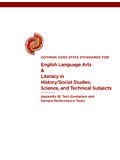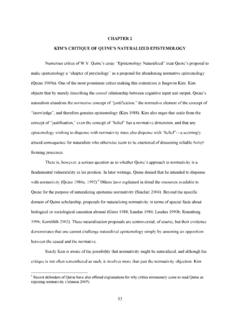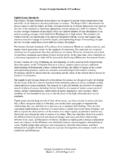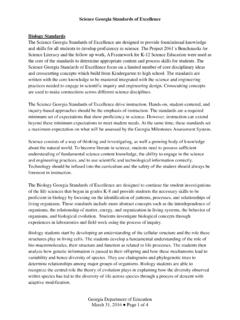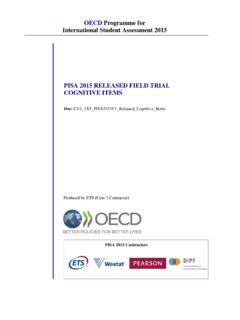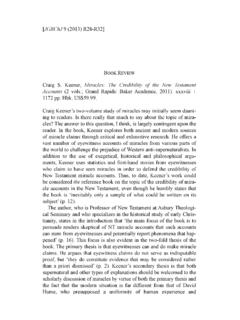Transcription of ZIMBABWE SCHOOL EXAMINATIONS COUNCIL …
1 ZIMBABWE SCHOOL EXAMINATIONS COUNCIL ( zimsec ) ADVANCED LEVEL SYLLABUS SOCIOLOGY 9157 examination SYLLABUS FOR 2013 - 2018 PREAMBLE This syllabus is intended to provide a course in Sociology at A-Level, which fosters the development of an understanding of the diversity and complexity of human societies with particular reference to ZIMBABWE . This two year course should stimulate an awareness of traditional and contemporary societies, focusing on social, cultural, economic and political issues. Emphasis should be put on the importance of examining these issues in a well reasoned and analytical way. AIMS Set out below are the suggested aims for the Advanced Level Sociology Syllabus (9061) for the purposes of EXAMINATIONS . The syllabus should therefore be able to:- stimulate an awareness of sociological concepts, theories, methods and research findings. stimulate awareness of the range and limitations of sociological theory and research.
2 Study sociological principles, perspectives and their applications. develop an understanding of sociological methods, including the collection, analysis and interpretation of data. encourage candidates to explore and appreciate the relationship between sociological findings and contemporary socio-political and economic issues. develop skills of sociological communication, interpretation, analysis, synthesis and evaluation. promote an appreciation and understanding of individual, social and cultural diversity. promote an understanding of continuity and change in social life. ASSESSMENT OBJECTIVES These assessment objectives should be able to assess the relevant competence candidates are expected to acquire by the end of the two year course. The course should provide valuable understanding of human societies, form the foundation on which students could be productive members of society, and also provide the foundation for further education in higher institutions of learning.
3 Knowledge and Understanding Candidates should be able to: offer definitions and explanations of relevant sociological terms and concepts; demonstrate appropriate knowledge of relevant principles, theories, and methods; demonstrate awareness of relevant sociological arguments through debates and research; discuss the theoretical and practical considerations influencing the design and execution of sociological enquiry; outline the findings from relevant sociological studies and research data. Interpretation and Application Candidates should be able to: interpret qualitative and quantitative sociological data presented in a variety of forms. recognise the special character of sociological knowledge and distinguish it from the knowledge and understanding produced by other academic subjects such as biology and psychology; identify and explore the links between relevant sociological concepts, theories, and research findings on social issues, select and use sociological material appropriately to analyse topical and relevant arguments and debates; apply concepts, theories and evidence to support arguments and conclusions.
4 Analysis, Synthesis and Evaluation Candidates should be able to: evaluate strengths and limitations of particular sociological theories and methods; analyse and assess sociological and non-sociological evidence and arguments; reach conclusions based on a reasoned consideration of evidence and arguments; recognise limitations and bias in evidence, and distinguish between fact and opinion. SCHEME OF ASSESSMENT Table I: examination Papers Paper Type Duration No. of Questions Max Mark Weighting 1 Section A: Structured Question(s) Section B: Essays 3 hours Answer all in Section A and any 2 from 5 in Section B 75 50% 2 Essay Questions 3 hours Answer 3 out of 10 75 50% Paper I will test syllabus units 1 to 5. Paper 2 will test syllabus units 6 to 10. The first examination will take place in November 2003 and every June and November sessions thereafter. Description of Papers Paper 1 The paper will be presented in two sections.
5 There will be structured questions on Methods and Perspectives in Section A and Essay Type Questions in Section B. Candidates will be required to answer all questions from Section A and any two questions from Section B. The examination will be of three hours duration. Paper 2 The paper will be presented in five sections. There will be two questions in each section. Candidates will be required to answer a total of three questions, selected from any three different sections. The examination will be of three hours duration. Specification Grid The relationship between the Assessment Objectives and the individual components is detailed in Tables II (Specification Grid) and III (Weighting) below. These objectives are weighted to give an indication of their relative importance, rather than to provide a precise statement of the percentage mark allocation to particular assessment objectives. Table III: Specification Grid PAPER 1 PAPER 2 Assessment Objectives Section A Section B X X X X X X X X X X X X X X X X X X X X X X X X X X X X X X X X X X X Weighting 50% 50% Table III: Weighting Assessment Objectives and Skills Paper 1 Paper 2 Average Knowledge and Understanding 40% 30% 35% Interpretation and Application 30% 30% 30% Analysis, Synthesis and Evaluation 30% 40% 35% Total 100% 100% 100% SUBJECT CONTENT Unit 1: Sociology as a Discipline This unit introduces candidates to key concepts and theories associated with a sociological understanding of human behaviour.
6 The aim is to begin to explore the nature of sociological enquiry and the insights it provides into the relationship between individuals and social structures. Introduction to Sociology - The sociological imagination ( Mills 1959). - Sociology as a reasoned and rigorous study of social life. - The relationship between sociology and other social science subjects. - Sociology as a science: positivist, interpretivist and post-modernist perspectives. - The significance of sociological knowledge. - Sociology and Social Policy: sociological problems and social problems. Historical Background of Sociology - The Industrial and French Revolution (1789 - 1799) - Founders: Auguste Conte (1798 - 1857) Karl Marx (1818 - 1883) Herbert Spencer (1820 - 1903) Emile Durkheim (1858 - 1917) Max Weber (1864 - 1920) Talcott Parsons (1902 - 1979) Williams I. Thomas (1863 - 1947) George H Mead (1863 - 1931) Theoretical Perspectives - Functionalist - Conflict - Interactionist Unit 2: Sociological Methods This unit introduces candidates to the basic concepts and issues in research design and evaluation.
7 The aim is to promote awareness of the grounds on which it is appropriate for sociologists to claim that their findings are truthful and worthwhile. Methods of Research - The distinctions between primary and secondary data between quantitative and qualitative data. - The different quantitative and qualitative methods and sources of data including questionnaires, interviews, observation techniques, experiments, longitudinal studies, case studies, content analysis, semiology, documents and official statistics (Triangulation). - The research process: deciding on research strategy, formulating research problems and hypotheses, sampling and pilot studies, conducting the research, interpreting results. - The theoretical, practical and ethical considerations influencing the choice of topic, choice of method(s) and the conduct of research. - The strengths and limitations of different sources of data and methods. - Validity, reliability, objectivity and representatives as key concepts in assessing the value of different methods of research.
8 Unit 3: The Individual and Society This unit examines the underlying relationships between the individual and society. The aim is to explore the links between socialisation, culture and the creation of social identity. Socialisation, Culture and Identity - Structuralist and Interactionist paradigms. - Culture and socialisation. - Theories of Culture: multiculturalism. - Primary and secondary socialisation with reference to ZIMBABWE . - Agents of socialisation: family, peer group, education, mass media, religion etc. - The concept of the self: the nature versus nurture debate the looking-glass self (Charles H. Cooley 1864 - 1929) the 'I' and 'Me'; the significant and generalised other (Mead) - The social construction of the concept of age, awareness of contrasting notions of childhood, adolescence and old age in different societies. Unit 4: Social Differentiation and Stratification This unit examines the underlying processes which shape the life chances of individuals and groups.
9 The aim is to identify and explain the level and pattern of inequality in contemporary societies in relation to four main categories of social stratification: social class, human rights, gender and ethnicity. Interconnections between these different aspects of social stratification should be emphasised. Candidates should also study ways in which differences and inequalities are created, recreated and sustained over time by social action and by social structures. Definition of Social Stratification - Forms of stratification. - caste - estate - class Social Class - Theories and models of social class; Marxist, Weberian, functionalist and post- modernist approaches; the relationship between occupation and social class. - The changing nature of the working class, middle class and upper class. - Social class and life chances; the impact of social class on equality of opportunities on employment health, status and lifestyle. - The meritocracy thesis.
10 - Inequalities of income and wealth, the relationship between economic, political power and human rights. - The nature, extent and significance of social mobility in different societies; ascribed and achieved status and their links with traditional societies and modern industrial societies respectively. - Different explanations of the distribution, globalization, existence and persistence of poverty. Gender - Theories of gender difference; functionalist, Marxist, and the various feminist approaches; biological, psychological and social elements of sex and gender differences. - Partriarchy and gender socialisation in the family, education, employment and the mass media; masculinity and femininity as social constructs. - Gender differences in occupations and rewards; changes in the social position of women; the impact of equal opportunities policies. Race and Ethnicity - Definitions of race and ethnicity, including cultural, religious and national identity.
